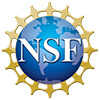This meeting has been postponed due to concerns about COVID-19. Please check Information on the Postponement in the side menu for more information.
Inquiries may be directed to Ginger White (ginger'dot'white'at'bioquest'dot'org).
21st Century Professional Development in
Undergraduate Life Sciences Education:
Supporting Student Success in the Evolving Academic and Science Workforce Landscape
Maritime Conference Center, Linthicum, MD
Due to limited funds, this meeting is by invitation only. Inquiries about participating should be directed to the organizers, Jay Labov (jblabov'at'gmail'dot'com) and Kristin Jenkins (kristin'dot'jenkins'at'bioquest'dot'org).
This conference will provide opportunities to explore the role of professional development as a strategic component of student success in the 21st Century. Student success in academia may be measured in various ways including retention and graduation, and beyond academia student success can be measured by career opportunities. Professional development for college and university faculty can play a key role in improving student outcomes and workforce preparation, but professional developers must be aware of the changing landscape to ensure that they are offering relevant content to faculty.
This meeting will focus on life science education, which serves as a gateway (and all too often a gatekeeper) course for many students interested in careers in science, K-12 education, and health sectors. We will consider professional development as provided for higher education instructors including tenure and non-tenure track, adjunct, and future faculty. Promoting evidence-based approaches to effective teaching and learning supports higher education goals and provides a prepared workforce for a vibrant economic sector including biotechnology, biopharmaceuticals, agricultural and environmental science. Quality professional development for all life science educators improves teaching and learning opportunities for an increasingly diverse spectrum of students.
Professional development providers are well aware of many of the changes occurring in the field, including a broader focus on inclusive pedagogies, and preparing students to be self-motivated, life long learners. At the same time financial pressures on higher education institutions have created new pressures on professional development including limited funding, and a large and hard to reach adjunct instructor pool. Rapid changes in technology offer both opportunities and new challenges in delivering professional development. The professional development field also faces its own challenges in terms of inclusivity and accessible practices.
This meeting is an opportunity to explore the future of professional development for all faculty in undergraduate life sciences.
Questions to be addressed at this meeting include:
-
How should professional development practices change to meet the needs of all life sciences faculty?
-
How can professional development support faculty in providing the skills life sciences graduates need for 21st Century careers?
-
How must professional development practices change to reflect equity, diversity, and inclusion both in what is offered to faculty, and in our own ranks?
-
On what aspects of professional development should research and evaluation be focused?
 This material is based upon work supported by the National Science Foundation under Grant No. 1346570. Any opinions, findings, and conclusions or recommendations expressed in this material are those of the author(s) and do not necessarily reflect the views of the National Science Foundation.
This material is based upon work supported by the National Science Foundation under Grant No. 1346570. Any opinions, findings, and conclusions or recommendations expressed in this material are those of the author(s) and do not necessarily reflect the views of the National Science Foundation.
